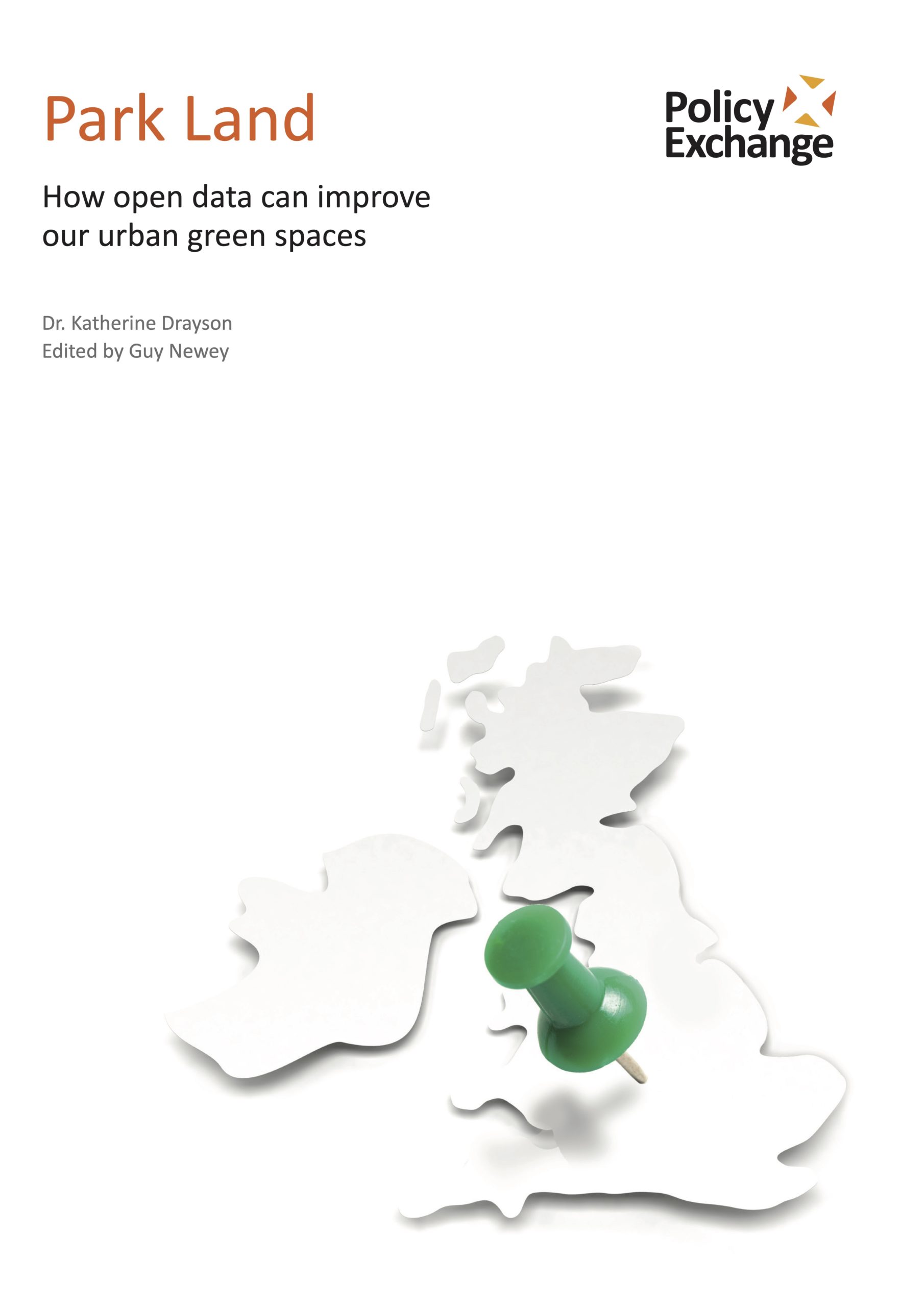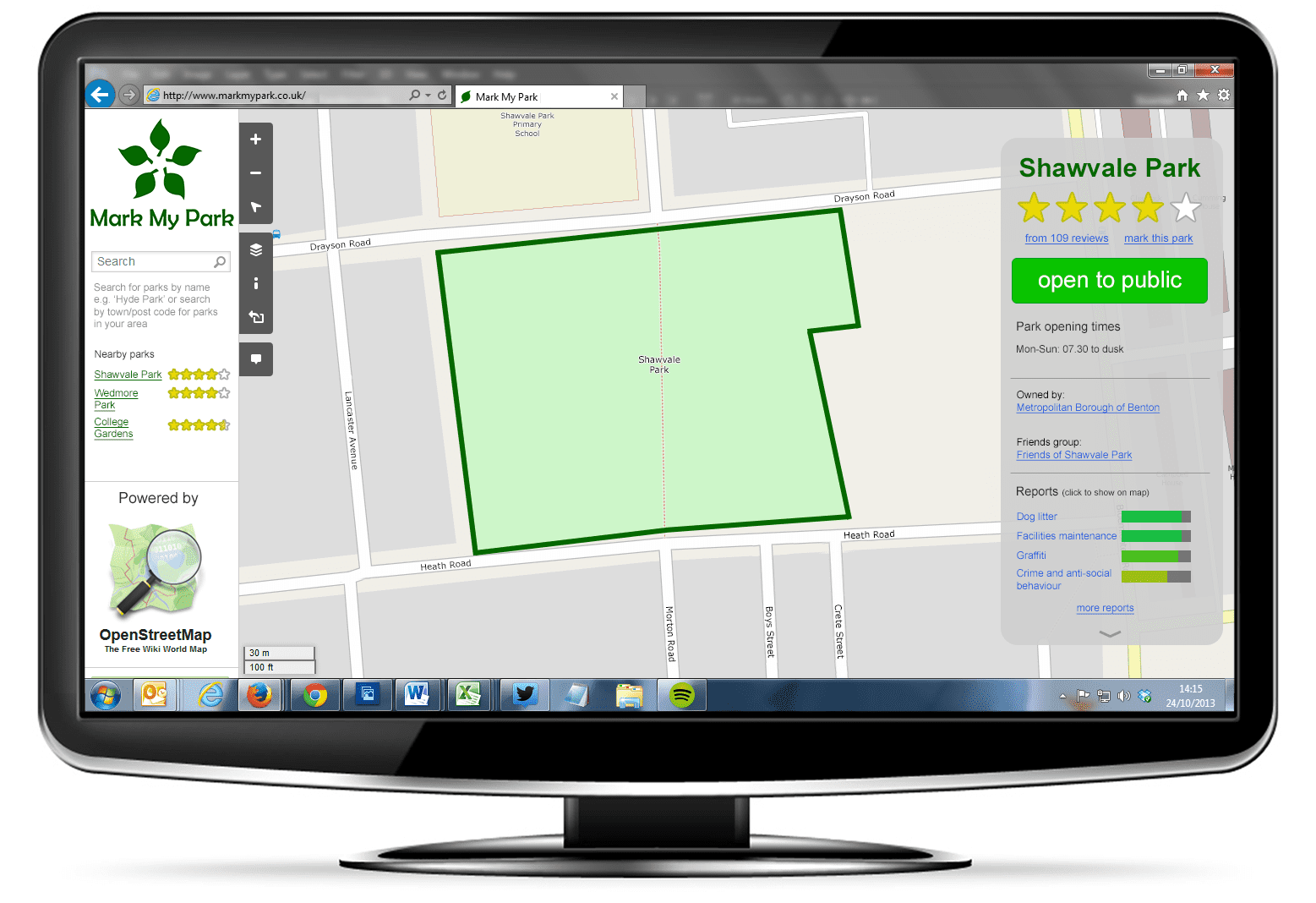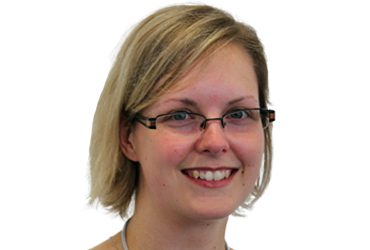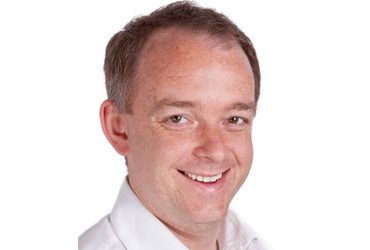
Park Land: How open data can improve our urban green spaces
Park Land, warns that the budgetary pressures could have a major impact on the quantity and quality of our urban green spaces. Financial constraints have led to local authorities in towns and cities across England reducing the amount of money they spend on parks and other green spaces. The cuts were felt most deeply in the North East with councils cutting the amount they spend on green spaces by almost 40% over the past three years. This compares to just a 3.4% reduction in spending in the South East.
Mark My Park website concept design

The report urges the government to establish a freely-available national urban green space map for the UK. A new online map which will crowd-source information from government, local authorities, NGOs and local communities, would allow the public to easily comment on the state of their local park and other green spaces. People would be able to use their smart phones to upload pictures of graffiti, vandalism, dog fouling and disrepair. They would also be able to compare ratings with other parks, access information on opening times, facilities and events. The map would help encourage existing and new volunteer and community groups to improve the quality of their parks when councils or others have failed to act.
The map would also help make sure people living in cities have adequate access to good green spaces, that public money was being well spent and that clever innovations in improving green spaces could be easily shared. The report found that current publicly available green space maps are woefully inadequate. For example, in the City of Westminster alone they underestimate the amount of urban green space by approximately 40%. The new website would be also allow people to include green spaces that official sources miss.
The report highlights the success of the free ‘Love Lewisham’ app which allows the public to photograph graffiti or fly-tipped waste and immediately report it to the council. Within two years the number of complaints about graffiti had fallen by almost a third.
Impact
On 3 September 2014, Deputy Prime Minister Nick Clegg announced that Ordnance Survey green space data will be compiled and made freely available, with a view to the development of a green space map, as recommended by Policy Exchange’s Park Land report.
Testimonials
“… Policy Exchange, a think tank that does so much to shape and inform debate across a wide range of issues, not least through their latest report Park Land.”
Owen Paterson – Secretary of State for Environment, Food and Rural Affairs
“an excellent report on Britain’s urban green spaces”
Toby Young – Columnist, The Spectator
“Urban green space matters. It is a serious quality of life issue that has been neglected for too long. There is an ever growing body of evidence showing the link between public health and ability to access green spaces such as woodland. Yet at present only 15% of people have a woodland within walking distance of where they live. We welcome Policy Exchange’s call for improved data availability on urban green space and hope it will further motivate people to access those spaces, protect and expand them. We hope it will also lead to a heightened emphasis by planners on the role of natural green spaces in shaping better places to live and work in the future’.”
Hilary Allison – Policy Director, Woodland Trust
“Mind recognises the importance of having vibrant green spaces that are publicly accessible. There is strong evidence of the role that access to green spaces can play in preserving good mental health and wellbeing. Therefore any tool or initiative that allows people, and local public health teams in particular, to openly access information about these vital green spaces is very welcome.”
Vicki Nash – Head of Policy and Campaigns, Mind
“The Heritage Lottery Fund is similarly concerned for the future of our public green spaces and we have been conducting some further research for publication next year. We warmly welcome the many creative ideas within this Policy Exchange report, particularly any which offer opportunities for communities themselves to help identify valuable community green space. Making data publicly available and enhancing public green space through community effort is at the very heart of what HLF does.”
The Heritage Lottery Fund
“The Federation of City Farms and Community Gardens welcomes the reports’ call for a UK urban green spaces map, fully accessible, and delivering benefits to local people and policy makers alike. A common typology across the UK will help communities input their views on the quality of provision and access, and stimulate engagement. Government, its agencies, and NGOs should work together to make this a reality.”
Ian Egginton-Metters – Network Co-ordinator, Federation of City Farms and Community Gardens
“RSPB’s work on Connecting with Nature shows that only one in five children are really in touch with the natural world. Part of the problem is that our urban green spaces are disappearing or being closed off from communities.
“Auditing the extent of green space and our access to it is a vital first step in reconnecting people with nature—and what better way to do it than to combine the wonders of smart technology with the wonders of nature? That way, people can personally put a pin on the map for the natural corners that bring a flash of brilliant green to the grind of city life”
Martin Harper – Director of Conservation, RSPB


